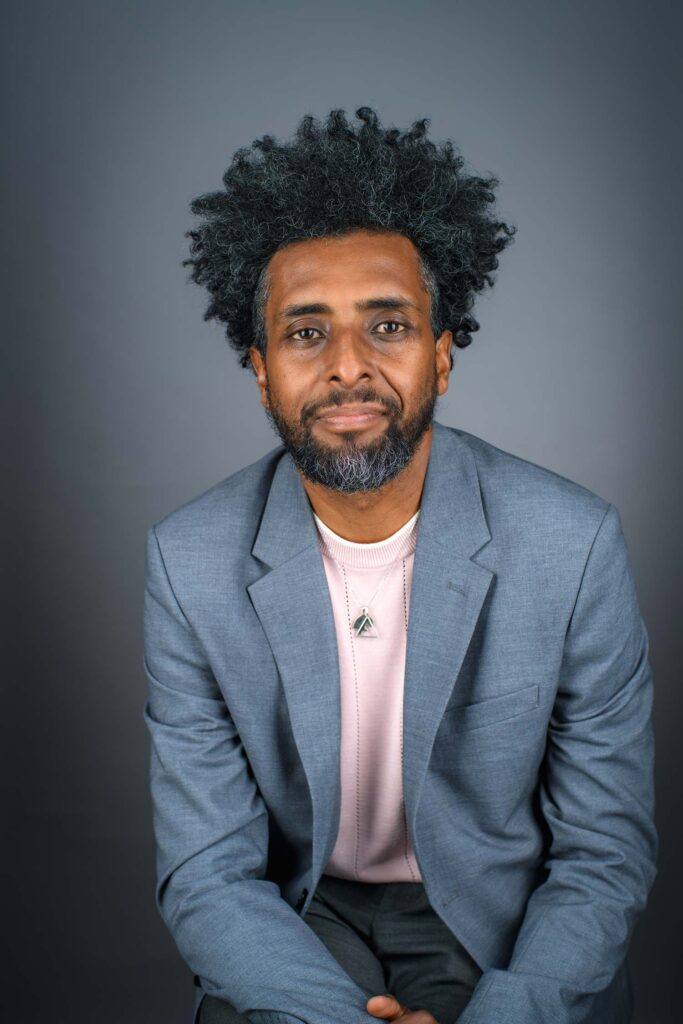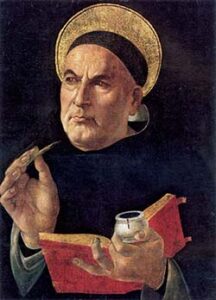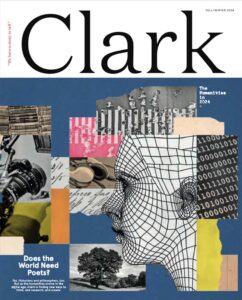
EDUARD ARRIAGA-ARANGO arrived at Clark just as his peers faced new challenges and opportunities posed by emerging technologies.
The time was right. Arriaga studies how language, literature, culture, and technology collide and intersect.
“Within digital humanities, we use computers and digital technology to explore questions in the humanities, and we also question technology,” says the associate professor and chair of the Department of Language, Literature, and Culture. “We ask, ‘How is technology improving humanity, and how is it possibly decreasing the importance of humanity?’ ”
Within the Higgins School of Humanities (recently renamed the Alice Coonley Higgins Institute for Arts and Humanities), Arriaga helped launch the Digital Humanities Research Collaborative. Last spring, he taught a workshop, with colleagues from the Computer Science Department and music and data science programs, on using technology for textual analysis, data mining, and visualization in arts and humanities research.
Arriaga first discovered “the power of computation” to quickly compile information almost two decades ago when he was a Ph.D. student in Hispanic studies and migration studies at the University of Western Ontario. He conducted research in the university’s newly launched CulturePlex laboratory. “We started to use those tools not to replace what we do in the humanities but to look at humanities questions from other perspectives,” he says.
Arriaga characterizes the differences between traditional and digital humanities as “yak and hack.”
“The yak is the theoretical approach that we in the humanities usually take, discussing everything and being philosophical,” he explains. “But in the digital humanities, we bring out the hack. We want people not only to speak but also to create things, to use those creations to think and then speak.” Those “things” might include a visualization (a graphical representation of data and information), model, web page, or database.
When studying a novel, for instance, a researcher could use data mining to quickly evaluate historical and literary contexts and “patterns” by analyzing other works published at the same time.
“WE WANT PEOPLE NOT ONLY TO SPEAK BUT ALSO TO CREATE THINGS.”
“You definitely can do similar research with a pen and paper, but how long would it take for you to get to these conclusions?” Arriaga asks.

In his research, he uses both a “yak” and “hack” approach. Through a grant from the Higgins Institute, he is applying digital humanities methods to investigate the connections between data mining—a process through which corporations and governments appropriate humans’ intellectual and creative work—and the extraction of minerals from the earth.
“Mining, the physical activity of extracting value from the earth, is connected, metaphorically and concretely, with data mining, which is extracting value from data,” Arriaga says.
Meanwhile, his research on Afro-Latinx and Afro-Latin American cultures and identities explores other social, political, and ethical questions surrounding technology. He is interested in how marginalized communities “apply technology but also use data to challenge how technology has been used to marginalize them and to use that power to give a message to the world that they exist and that they are human beings.” ▣

